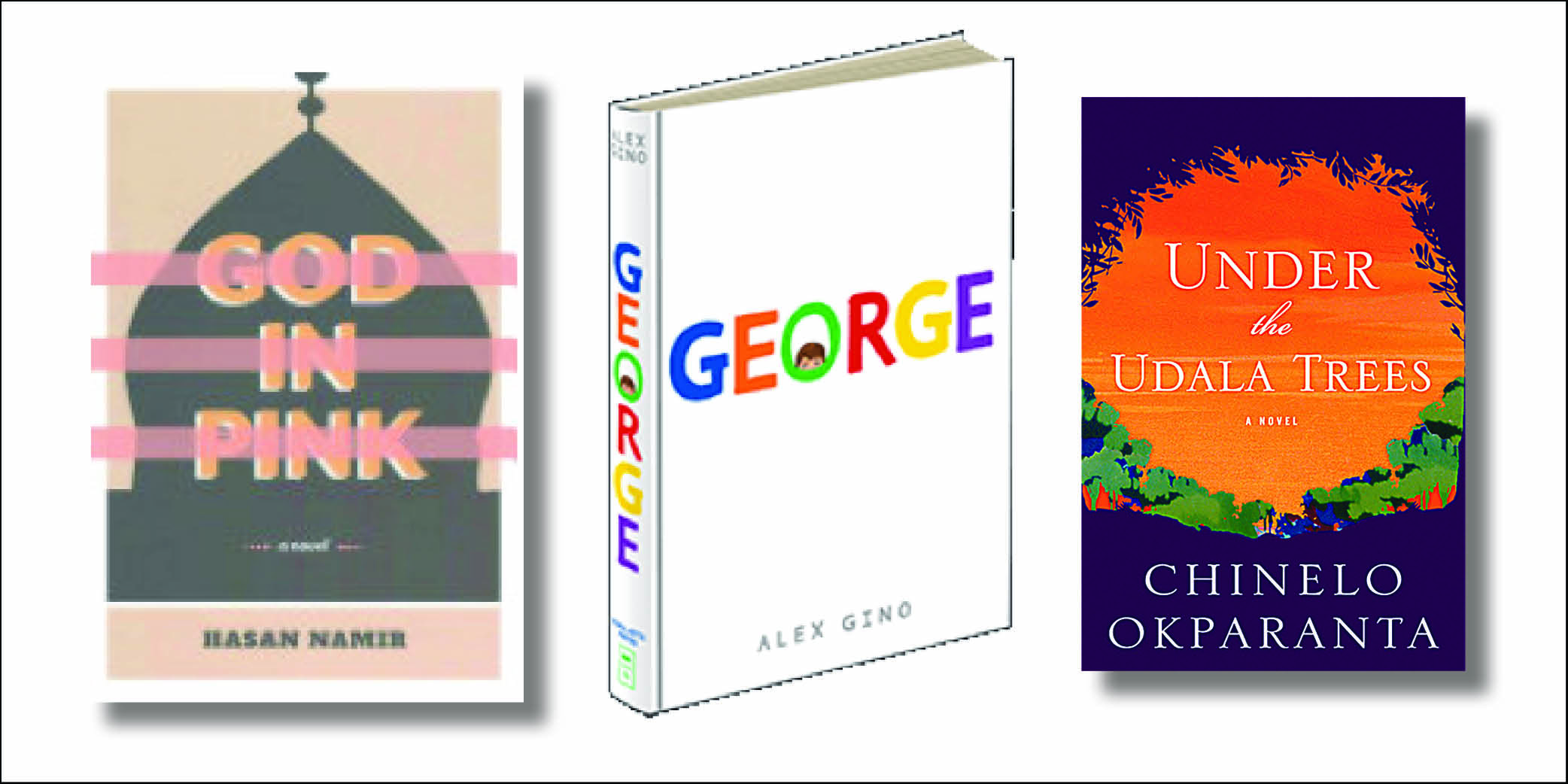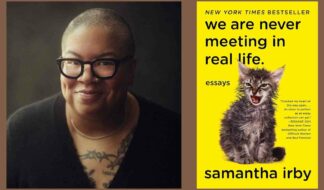By Keith Orr

Writers often feel things more intensely than other people and are better able to articulate those feelings. We are the canaries in the coal mine. This time, perhaps because I feel an affinity for the victims, I feel the impact of this horror more intensely and have the need to speak up, not only to exorcise this intransigent demon but also to … I don't know … BE the canary in the goddamn coal mine.
-Andrew Beierle, Lambda Award Winner 2003, Winter of My Discotheque
The 2016 Lambda Literary Awards were presented on June 6. The Lammys are the highest award for LGBT literature. They are the gay wordsmiths' Oscars. Everything in my life, and probably yours, is currently being defined as "before Orlando" or "after Orlando." The awards ceremony was pre-Orlando. Post-Orlando, I caught up with a couple of Lammy nominees and winners to get their impression of the awards, and to hear them talk about the added importance of these awards in a post-Orlando environment.
Jameson Currier is a novelist, short story writer, poet, critic, journalist, editor and publisher. He has been a Lambda nominee and has attended many of the Lambda Awards ceremonies. Jameson described the mood at the ceremony: "One of the joys of being at the Lammys, and I have been to quite a few over the years, is the exuberance of the winners, no matter how they classify on the LGBT identity or ally spectrum, and all the winners are memorable for their joy and sincerity. This year the gang behind Glitter & Grit: Queer Performance from the Heels on Wheels Femme Galaxy were particularly boisterous and crowd-pleasing."
This year's list of nominees is an impressive collection of seasoned professionals, exciting new voices and more than a handful of revolutionary voices. Lillian Faderman, at age 75, received another nomination, this time for "The Gay Revolution: The Story of the Struggle." At the opposite end of the spectrum, Alex Gino won in the LGBT Children's/Young Adult for "George," a first novel for Alex.
"George" fills an important gap for middle grade transgender youth. It is the story of a fifth grader named George, who has an alternate identity as Melissa. The fifth grade is putting on a play based on "Charlotte's Web," and George wants to audition for the role of Charlotte. She slowly gathers the trust and acceptance of her best friend, her teacher, her parents and especially her brother. An utterly charming book, it is an important addition to the literature for friends and family of trans youth, and an entertaining read for everyone else.
The Gay Fiction category was filled with great writing. The prize went to Canadian-Iraqi writer Hasan Namir for his debut novel, "God in Pink." Other finalists included Paul Russell for his current novel "Immaculate Blue"; Mark Merlis for "JD"; and Truman Capote (yes, THAT Truman Capote) for "The Early Stories of Truman Capote."
Set in 2003 in war-torn Iraq, "God in Pink" is about being queer and Muslim. Ramy is a university student whose parents have died. He lives with his very strict brother and sister-in-law. They pressure him to find a wife, as he tries to navigate a balance between religion, culture and sexuality. The novel alternates between great beauty and sheer violence.
With the right wing trying to put a wedge between the LGBT and Muslim community, especially in the wake of Orlando, this is a timely and important novel.
LGBT literature is a vital element of our community and even more so now, because it helps both our community and those outside of it understand our lives better. As a gay man of a certain generation, there were only a few "safe spaces" that we could go to discover our identity, friends and other members of our community. Those places were bookstores and bars, and in some larger cities, theater companies, and that is one of the reasons why the impact of the Orlando tragedy has resonated so deeply in our community – because the place we went to dance and meet our friends was no longer safe.
I've never been able to attend the Lammys. Instead, I look forward to live tweeting from Rob Byrnes, author of "The Night We Met," "Trust Fund Boys," the Lambda award-winning "When The Stars Came Out," and a delightful series of comic crime caper books. I asked Byrnes about this year's Lammys post-Orlando.
"The Lambda Literary Awards were held on a Monday night. Within a week, 49 people – many our LGBT brothers and sisters – were murdered in Orlando, and dozens more wounded. The attack on Pulse has been felt as an attack on all of us, which is why it has particularly resonance within the LGBT community. I am absolutely not an enemy of straight people – 'some of my best friends,' and so on…but I am not a straight person, and they are not me. That is the reason Orlando has hit me and most LGBT people so hard. And that is the reason we have pushed back when the media and public officials have attempted to "de-gay" the massacre. Because despite our wide diversity, there is also a commonality that binds us and must not be erased," said Byrnes.
The Lambdas often show the diversity of our community. The Best Lesbian Category was won by Nigerian-American writer Chinelo Okparanta for her novel, "Under the Udala Trees." Chinelo has been frequently published for short stories, but "Under The Udala Trees" is another debut novel to win a Best Category this year. It is a gripping novel set during the Nigerian civil war – part coming of age, part love story and part war story. Ijeoma is torn from her family and works as a servant to a grammar school teacher. She meets and falls in love with Amina, and convinces the teacher to take her on as well. Young love is torn apart, and Ijeoma is returned to her strict mother, who seems to believe in some form of Bible-based gay reparative therapy. The ensuing story may seem reminiscent of American "forbidden love" stories, though they are overlaid with religious, cultural and legal hurdles of present-day Nigeria, where same-sex love can still be punished by death.
As we celebrate the one-year anniversary of the SCOTUS decision legalizing same-sex marriage, Orlando reminds us that many in America still believe that same-sex love should be punished by death here as well. What holds us together is a sense of community and shared culture which refuses to be silenced by Orlando. Byrnes spoke about the importance of literature in the wake of Orlando:
"When hundreds of LGBTQ writers gather in one room, a community is created. There is no divide between fiction and nonfiction, between literary and genre, between poetry and prose. We mutually appreciate and celebrate our shared, if diverse, culture, and recognize the paramount importance of using the written word to create art that reflects who we are and how we live. That is the community I experience at the Lambda Literary Awards," said Byrnes.
If anything, the tragedy in Orlando has left me all the more convinced that our words matter more than ever, which makes the celebration of them through the Lambda Literary Awards, Publishing Triangle Awards and other channels extremely important. We are the only ones who can truly describe our lives in all their complexity and diversity.










